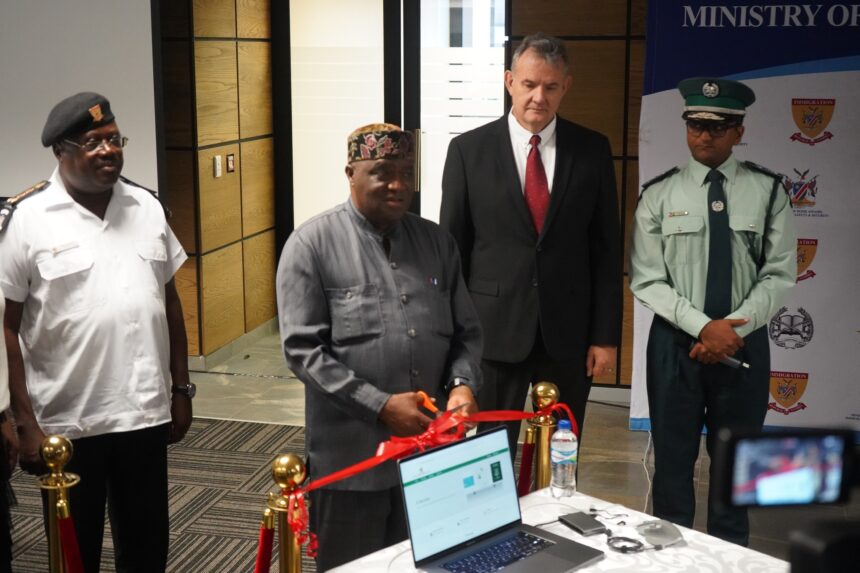Rudolf Gaiseb
Home affairs, immigration, safety and security minister Albert Kawana said with the visa-on-arrival policy in place, Namibia began to see an increase in the number of international visitors.
He said it has become clear that facilitating smooth and efficient entry processes is the key to encouraging more tourism and fostering positive diplomatic relations.
Kawana said this during the official launch of the visa on arrival yesterday.
He noted that the system was groundbreaking for a country like Namibia, where tourism plays such an integral role in both economic development and international relations.
Kawana said Cabinet took careful steps to ensure that the implementation of the new visa changes would not cause a negative impact on the tourism industry.
He stated that discussions with stakeholders in the tourism sector were held to address concerns about fees, timing and the potential impact on budget travellers.
In essence, the visa-on-arrival initiative will enable travellers to complete their visa application before arriving in Namibia.
“Travellers will no longer have to wait in long queues to complete their visa applications at ports of entry. They can simply apply online prior to departure.
“Travellers benefitting from this online system will not be required to submit additional documents, such as bank statements. They are required to indicate their means of sustenance for the duration of their stay in Namibia,” he said.
Countries where Namibia has no diplomatic representation will no longer need to apply for a visa in advance, as they will get such upon arrival in Namibia.
In 2019, a decision was made for 45 countries to benefit from visas on arrival.
In 2023, 11 more countries were added.
Today, citizens from 57 countries worldwide benefit from the facility.
Moreover, the minister highlighted that starting on 1 April 2025, Namibia will expand the visa-on-arrival policy.
For travellers from countries that have positively engaged with Namibia and have reciprocated Namibia’s visa exemptions, the benefits will continue.
However, citizens from countries that have not reciprocated these exemptions will be required to pay a fee upon arrival.
Additionally, 33 countries that previously benefitted from visa exemption will now need entry visas to enter Namibia.
“Nationals from these 33 countries are encouraged to already apply for visas using the electronic visa regime with effect from today so that when they arrive from 1 April 2025 onwards, they should not experience immigration challenges. The electronic visa regime will enable them to apply for visas even for travels to be undertaken in the future after 1st April 2025,” he pinpointed.
These countries are included: Armenia, Australia, Austria, Azerbaijan, Belarus, Belgium, Canada, Denmark, Finland, France, Germany, Iceland, Ireland, Italy, Japan, Kazakhstan, Kyrgyzstan, Liechtenstein, Luxembourg, Moldova, Netherlands, New Zealand, Norway, Portugal, Spain, Sweden, Switzerland, Tajikistan, Turkmenistan, Ukraine, the United Kingdom, the United States of America and Uzbekistan.
Visas-on-arrival are available at major border and entry points, including Hosea Kutako International Airport, Walvis Bay International Airport, Katima Mulilo, Ngoma, Impalila Island, Trans-Kalahari, Oshikango Mohembo, Ariamsvlei, Noordoewer and Oranjemund Border Posts.
-rrgaiseb@gmail.com



